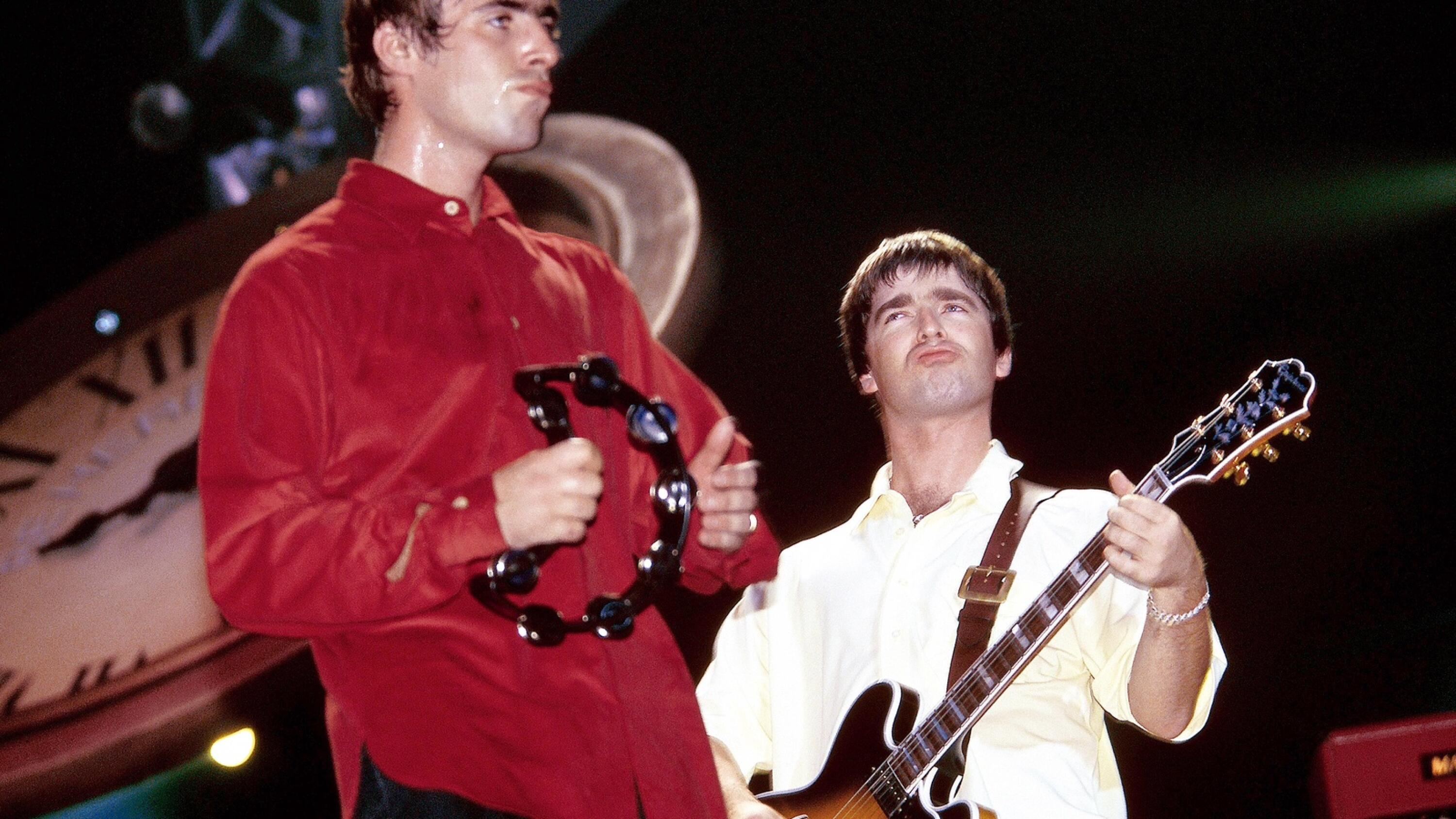Oasis Tour Audit: Did Ticketmaster Violate Consumer Protection Laws?

Table of Contents
Excessive Fees and Dynamic Pricing
The exorbitant fees added to the base ticket price for the Oasis tour sparked widespread outrage. These weren't just standard booking fees; they were a complex array of surcharges that significantly inflated the final cost.
The Impact of Hidden Costs
The addition of numerous hidden costs—service fees, facility fees, order processing fees, and more—made it difficult for fans to understand the true price upfront. This lack of transparency severely impacted affordability and accessibility, effectively pricing many genuine fans out of attending the shows.
- Examples of additional fees: Service fees often exceeding 20% of the ticket price, facility fees varying wildly between venues, and obscure "order processing fees" added with little explanation.
- Comparison to similar events: A comparison of Oasis tour ticket prices with those of similar-sized concerts revealed significantly higher final costs, even when adjusting for venue differences.
- Impact on accessibility for average fans: The added fees created a significant barrier to entry for many average fans, who found the final cost prohibitive. This raised concerns about fairness and equal access to live music events.
The Legality of Dynamic Pricing
Ticketmaster's use of dynamic pricing—where prices fluctuate based on demand—is a contentious issue. While not inherently illegal, the question arises whether Ticketmaster's implementation created an unfair advantage and facilitated price gouging.
- Definition of dynamic pricing: A pricing strategy where ticket prices adjust automatically based on factors like demand, availability, and time until the event.
- Examples of price fluctuations: Reports surfaced of ticket prices fluctuating wildly within short periods, suggesting potential manipulation to maximize revenue.
- Potential for manipulation and price gouging: Critics argue that dynamic pricing, when implemented without transparency and oversight, can be used to artificially inflate prices and exploit consumer demand, potentially violating consumer protection laws against unfair trade practices.
Website Crashes and Bot Usage
The Oasis tour ticket sales were plagued by website crashes and widespread allegations of bot usage, further fueling the controversy and raising serious questions about Ticketmaster's operational capabilities and commitment to fair access.
The Role of Bots in Ticket Scalping
Numerous reports indicated that bots—automated programs designed to purchase tickets en masse—played a significant role in securing large quantities of tickets, leaving genuine fans empty-handed. This raises questions about Ticketmaster's ability to effectively prevent bot usage and protect consumers from scalpers.
- Evidence of bot activity during sales: Social media was flooded with anecdotal accounts of website delays and rapid sellouts, strongly suggesting the involvement of bots.
- Impact on genuine fans' ability to purchase: The prevalence of bots severely limited the ability of genuine fans to secure tickets, leading to frustration and disappointment.
- Ticketmaster's response to bot usage: Ticketmaster's response to the allegations of bot activity was criticized as insufficient, with many feeling their efforts to combat bot usage were inadequate.
Website Functionality Failures
The Ticketmaster website experienced significant crashes and technical issues during the Oasis tour ticket sales, preventing many legitimate customers from purchasing tickets. This failure to provide a functional platform raises serious legal implications.
- Frequency and duration of outages: Reports indicated multiple crashes and extended periods of unavailability, significantly impacting the sales process.
- Impact on consumer trust: The website failures eroded consumer trust in Ticketmaster's ability to handle high-volume ticket sales efficiently and fairly.
- Legal responsibility for website failures and resulting lost sales: The question of Ticketmaster's legal responsibility for the website failures and the resulting loss of sales for fans remains a crucial area of investigation.
Lack of Transparency and Consumer Information
Beyond the technical issues, the lack of transparency surrounding fees and the difficulties in obtaining refunds or redress further exacerbated the negative experience for many fans.
Insufficient Disclosure of Fees
The information provided to consumers regarding fees was often unclear and insufficient, failing to meet the legal requirements for transparency in ticket sales.
- Examples of unclear or hidden fees: Many fees were buried deep within the purchase process, making it difficult for consumers to understand the true cost before committing to a purchase.
- Comparison to industry best practices for disclosure: Ticketmaster's disclosure practices fell short of industry best practices for upfront and clear disclosure of all fees.
- Legal requirements for transparency in ticket sales: Various consumer protection laws require clear and upfront disclosure of all costs associated with a purchase. Ticketmaster's practices may have fallen short of these legal requirements.
Difficulty in Obtaining Refunds or Redress
Many fans who experienced problems during the ticket purchasing process reported significant difficulties in obtaining refunds or redress from Ticketmaster.
- Reported difficulties contacting customer service: Numerous reports detailed long wait times and unhelpful customer service representatives.
- Lack of clear refund policies: Ticketmaster's refund policies were often unclear and difficult to navigate.
- Legal recourse available to consumers: Consumers who experienced problems have potential legal recourse, including filing complaints with consumer protection agencies or pursuing legal action.
Conclusion
This Oasis tour audit reveals serious concerns about Ticketmaster's practices and their compliance with consumer protection laws. The evidence suggests potential violations relating to excessive fees, inadequate website functionality, and a significant lack of transparency. Consumers deserve fair access to tickets and transparent, upfront pricing. Further investigation is needed to determine the full extent of these potential violations and ensure accountability. If you experienced issues purchasing Oasis tour tickets, consider exploring available legal avenues to seek redress. Do you believe Ticketmaster’s actions during the Oasis tour ticket sale violated consumer protection laws? Share your thoughts and experiences using the hashtag #OasisTourAudit.

Featured Posts
-
 Alcarazs Monte Carlo Victory Musetti Forced To Retire
May 30, 2025
Alcarazs Monte Carlo Victory Musetti Forced To Retire
May 30, 2025 -
 Measles Cases In Us Increase To 1 046 Indiana Outbreak Ends
May 30, 2025
Measles Cases In Us Increase To 1 046 Indiana Outbreak Ends
May 30, 2025 -
 Ruuds Knee Injury Costs Him French Open Match Against Borges
May 30, 2025
Ruuds Knee Injury Costs Him French Open Match Against Borges
May 30, 2025 -
 Autoroute A69 Ministres Et Parlementaires Unis Pour Relancer Le Chantier
May 30, 2025
Autoroute A69 Ministres Et Parlementaires Unis Pour Relancer Le Chantier
May 30, 2025 -
 Fallas Ticketmaster Hoy 8 De Abril Grupo Milenio Reporta
May 30, 2025
Fallas Ticketmaster Hoy 8 De Abril Grupo Milenio Reporta
May 30, 2025
